As 2021 draws to a close, sadly we are still seeing variants of Covid trying to pin us down. That said, it should not over-shadow the amazing work that UK manufacturing is producing.
Investment has continued to be reported in the UK and there is no doubt that this fantastic Island of ours is still pushing ahead
In the past we have featured Good News Stories from around the various manufacturing industries in the UK and we feel this is something that should be summarised, and to that end here are a few success stories from recent months.
Please feel free to share these stories and news articles from recent months and keep pushing to get the message out there loud and clear – UK Manufacturing is Great, Britain is Great!
Coca-Cola invests £28 million at its Sidcup manufacturing site
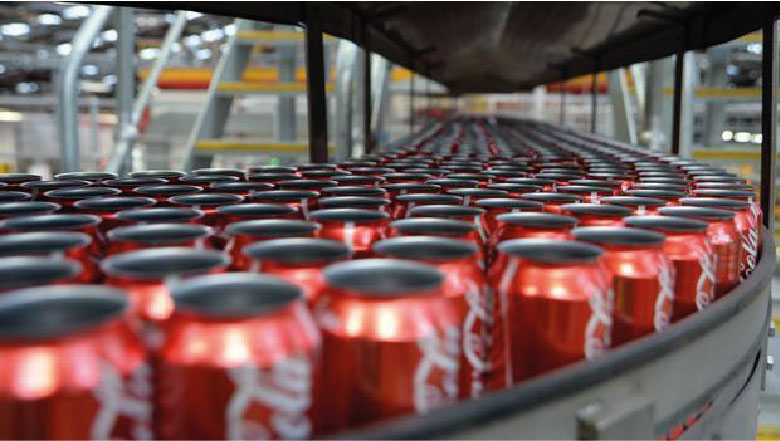 Coca-Cola Europacific Partners (CCEP), the world’s largest independent bottler of Coca-Cola, has announced a £28million investment at its manufacturing site in Sidcup, coinciding with the site’s 60th anniversary.
Coca-Cola Europacific Partners (CCEP), the world’s largest independent bottler of Coca-Cola, has announced a £28million investment at its manufacturing site in Sidcup, coinciding with the site’s 60th anniversary.
The site, which operates 10 production lines and is the only Coca-Cola site in GB to produce 150ml and 250ml cans, has received an additional £28million investment this year, totalling £118million since 2017.
The latest round of investment has funded a state-of-the-art high-speed canning line, capable of producing 2,000 cans per minute, elevating the site’s production capabilities and supporting the production of sustainable packaging for CCEP’s well-known brands including Coca-Cola original taste, Diet Coke, Coca-Cola Zero Sugar, Fanta, Dr Pepper, Lilt, Sprite, Schweppes and Capri-Sun.
The site has already seen a 26% reduction in its carbon footprint since 2010, which can be attributed to a variety of energy saving measures, including the installation of the site’s Automated Storage Retrieval System (ASRS), which officially opens [today], and has significantly increased efficiencies across the supply chain, saving 3,687 tonnes of CO2 per year and 10,817 road miles by HGV trucks.
The new line, set to open in June 2022, will accelerate these carbon savings even further, with the investment helping the business on its mission to become net zero by 2040. The new line will also open up 19 new job roles in the local area.
Alstom delivers first Derby-built Innovia 300 monorail trains for Cairo Monorail on time
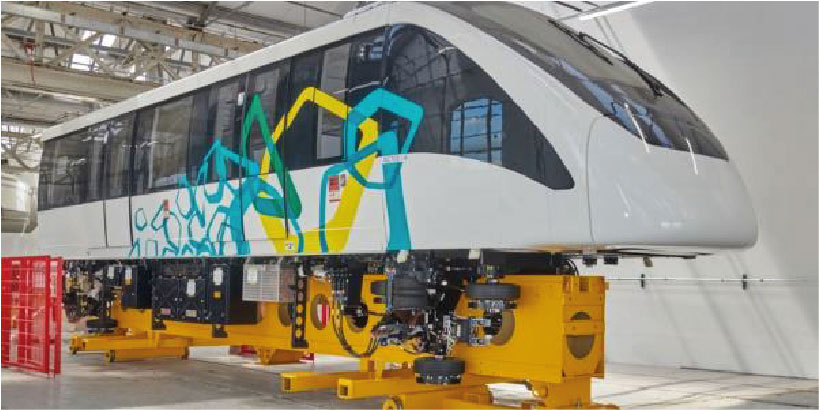 Alstom’s first two Innovia 300 monorail trains for the Cairo Monorail project have arrived in Cairo after being completed at Alstom’s Derby UK factory, with propulsion systems application led by Alstom’s site in Trapaga, Spain. The dispatch of the first 8 fully automated, driverless cars out of 70 trains (a total of 280 cars) is a major milestone in the Cairo Monorail project, Egypt’s first two monorail lines, linking the New Capital City and 6th October City to Greater Cairo.
Alstom’s first two Innovia 300 monorail trains for the Cairo Monorail project have arrived in Cairo after being completed at Alstom’s Derby UK factory, with propulsion systems application led by Alstom’s site in Trapaga, Spain. The dispatch of the first 8 fully automated, driverless cars out of 70 trains (a total of 280 cars) is a major milestone in the Cairo Monorail project, Egypt’s first two monorail lines, linking the New Capital City and 6th October City to Greater Cairo.
In August 2019, an Alstom-led consortium composed of Orascom Construction and Arab Contractors signed a €2.7bn contract to design, implement, operate, and maintain the two lines. The project includes a 54 km line connecting the New Administrative City with East Cairo and a second 42 km line connecting 6th of October City with Giza.
Both lines are expected to open in 2023. After the construction phase is completed, the Alstom-led consortium will provide 30 years of operation and maintenance (O&M) services for both lines
Sprit AeroSystems opens new £28 million innovation centre in Prestwick
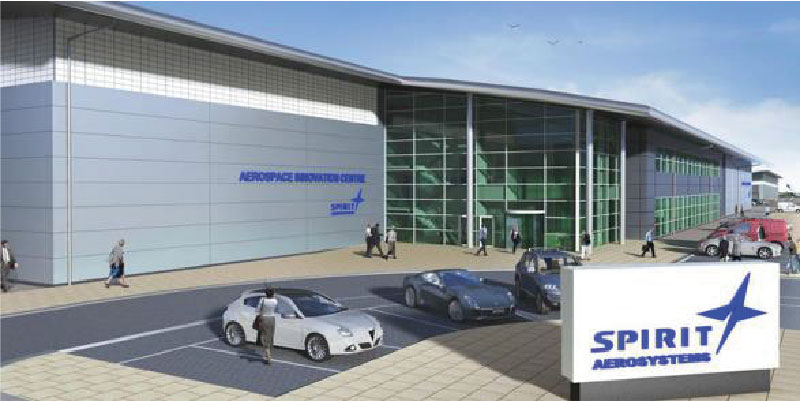 A new research and development centre for the manufacture of lighter aircraft components has been officially opened by First Minister Nicola Sturgeon in Prestwick today.
A new research and development centre for the manufacture of lighter aircraft components has been officially opened by First Minister Nicola Sturgeon in Prestwick today.
Spirit AeroSystems’ Aerospace Innovation Centre (AIC) will explore new, more efficient approaches to the design and manufacture of aerostructures such as wings, using lightweight composite material technology to reduce flight emissions and lower costs.
The 90,000 square foot facility combines the technology and expertise required by Spirit and its partners creating the capability for future composite aerostructures manufacturing and the expansion of supply chain opportunities in Scotland.
The centre will also be open to companies in other sectors undertaking similar research into composite solutions, such as those in the automotive or renewable energy sectors.
The £28 million facility was supported with a £4.8m research and development infrastructure grant from Scottish Enterprise.
Electric truck pioneer Tevva set to create 1,000 jobs at new factory in the UK
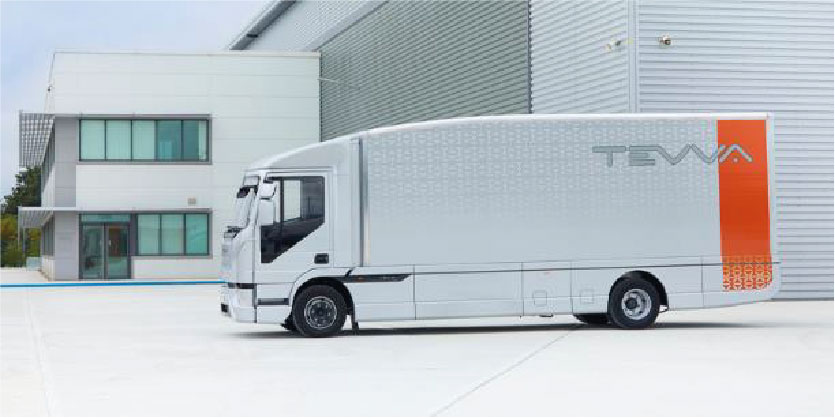 Electric truck pioneer Tevva has today unveiled the new Tevva Truck – the first British designed 7.5-tonne electric truck intended for mass production in the UK. The global electric truck market was valued at $1.15 billion in 2020 and is expected to grow to $14.19 billion by 20271.
Electric truck pioneer Tevva has today unveiled the new Tevva Truck – the first British designed 7.5-tonne electric truck intended for mass production in the UK. The global electric truck market was valued at $1.15 billion in 2020 and is expected to grow to $14.19 billion by 20271.
The Tevva Truck has been unveiled to address the immediate industry need to electrify, with the United Kingdom and Europe committed to a target of net zero emissions by 2050 alongside a proposed ban on the sale of all polluting vehicles by 2035.
Offering a range of up to 160 miles (250 km) in pure battery electric vehicle (BEV) form or up to 310 miles (500 km) with its patented range extender technology (REX), which has now been upgraded to use hydrogen fuel cells; the Tevva Truck brings a best in class combination of capability and cost efficiency from a zero emissions medium duty truck, while offering the ruggedness and resilience of traditional trucks.
JDR Cable Systems to build new £130 million factory in Northumberland
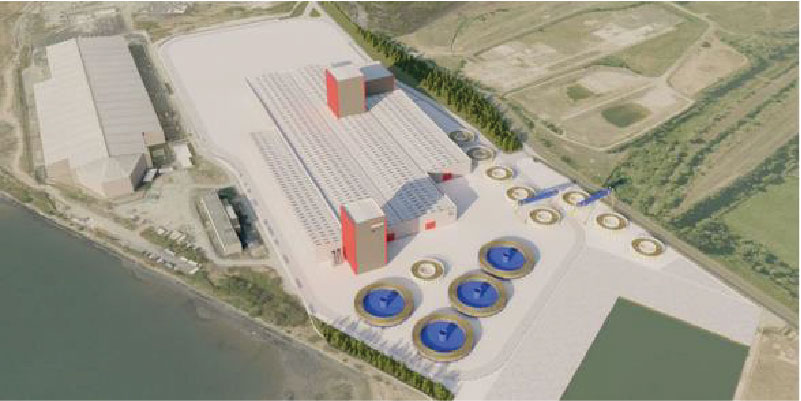 JDR Cable Systems, the global subsea cable and umbilical supplier and servicer, part of the TFK Group, has announced plans to open a new state-of-the-art subsea cable manufacturing facility in Cambois, near Blyth, Northumberland.
JDR Cable Systems, the global subsea cable and umbilical supplier and servicer, part of the TFK Group, has announced plans to open a new state-of-the-art subsea cable manufacturing facility in Cambois, near Blyth, Northumberland.
JDR has confirmed its intention to go ahead with the project, subject to final agreements, with construction expected to begin in 2022 ahead of a 2024 opening, creating 170 high-quality local jobs on completion and safeguarding 270 jobs at JDR’s existing facilities. The initial project investment is estimated at £130m, which will be part funded by a grant from the BEIS Offshore Wind Manufacturing Investment Support (OWMIS) scheme. JDR and TFK plans to raise the remaining funding with support expected from financial institutions and UK Export Finance.
The new facility is the first stage of JDR’s plans to expand its product portfolio to support the growing global renewable energy market, adding high voltage export and long length array cables to its existing capacity and product capabilities. Further stages of the development could result in over 400 staff working at the site, with supplied products complementing JDR’s existing capacity provided by the company’s Hartlepool and Littleport UK manufacturing centres. When complete, the facility will include a new catenary continuous vulcanisation (CCV) line, making it the only facility in the UK capable of full start-to-finish manufacturing of high voltage subsea cables for offshore wind farms to support the growing global renewable energy market.
Ford announces £230 million investment at Halewood plant
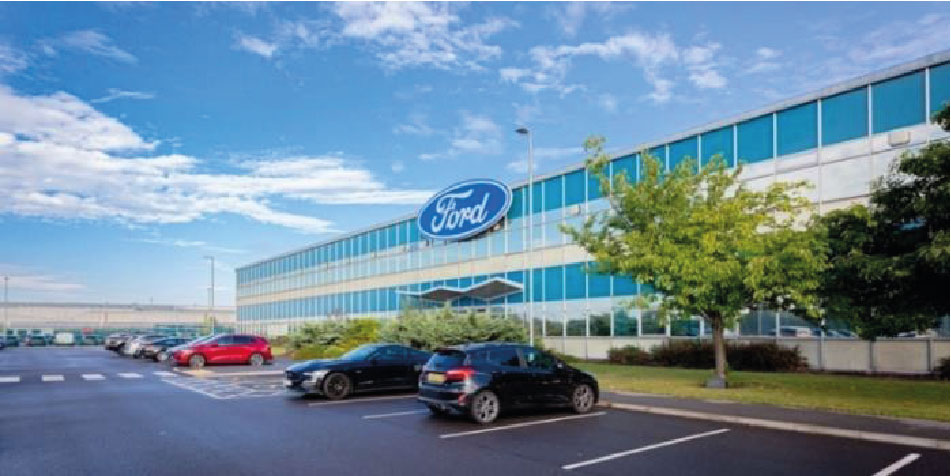 Building on its commitment to go all-in on electrification in Europe, Ford announced today that it intends to invest up to £230 million at its Halewood vehicle transmission facility to transform it to build electric power units for future Ford all-electric passenger and commercial vehicles sold in Europe.
Building on its commitment to go all-in on electrification in Europe, Ford announced today that it intends to invest up to £230 million at its Halewood vehicle transmission facility to transform it to build electric power units for future Ford all-electric passenger and commercial vehicles sold in Europe.
Power unit production in Halewood is expected to begin in mid-2024. Production capacity is planned to be around 250,000 units a year. The investment – which is subject to and includes U.K Government support through its Automotive Transformation Fund – will help safeguard the Ford jobs at Halewood.
“This is an important step, marking Ford’s first in-house investment in all-electric vehicle component manufacturing in Europe. It strengthens further our ability to deliver 100 percent of Ford passenger vehicles in Europe being all-electric and two-thirds of our commercial vehicle sales being all-electric or plug-in hybrid by 2030,” said Stuart Rowley, president, Ford of Europe.
“We also want to thank the U.K. Government for its support for this important investment at Halewood which reconfirms Ford’s continuing commitment to the U.K. and our position as a leading investor in this country’s auto industry and technological base.”
The UK Government’s business secretary, The Rt. Hon. Kwasi Kwarteng MP, said: “Ford’s decision to build its first electric vehicle components in Europe at its Halewood site is further proof that the UK remains one of the best locations in the world for high-quality automotive manufacturing. In this highly competitive, global race to secure electric vehicle manufacturing, our priority is to ensure the UK reaps the benefits.
“Today’s announcement, backed by government funding, is a huge vote of confidence in Britain’s economic future and our plans to ramp up electric vehicle production. It will future-proof Halewood’s proud industrial
Essar submits plans for hydrogen production plants
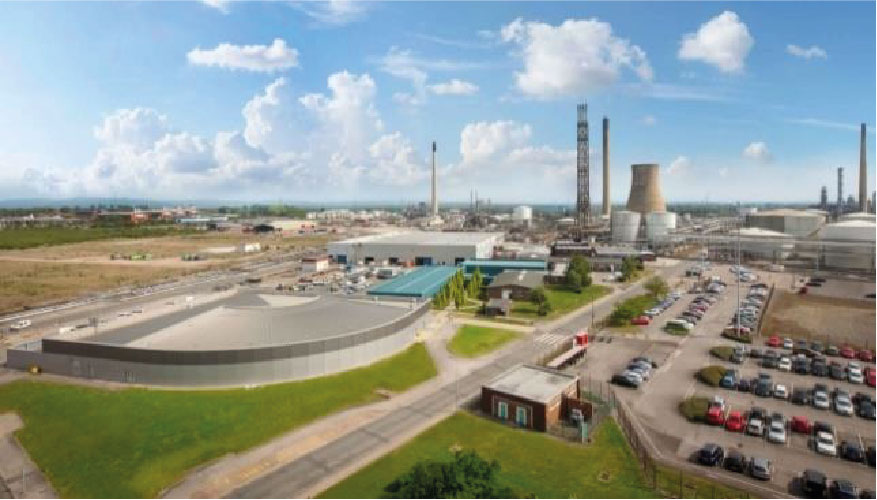 Essar Oil UK has submitted a planning application to Cheshire West and Chester Council, seeking approval for the construction of hydrogen production plants at its Stanlow manufacturing complex in Ellesmere Port.
Essar Oil UK has submitted a planning application to Cheshire West and Chester Council, seeking approval for the construction of hydrogen production plants at its Stanlow manufacturing complex in Ellesmere Port.
The proposed hydrogen plants will form a central pillar of the HyNet North West initiative, a low carbon energy project that aims to position the region at the leading edge of the UK’s transition to net zero.
The construction of two blue hydrogen production hubs at Stanlow will attract £750m in total investment and support a hydrogen economy across North West England and North East Wales. If approved, construction work is scheduled to begin on site by the end of 2022, with hydrogen production set to commence by the mid-2020s.
Essar chief executive officer, Deepak Maheshwari, said: “Essar is committed to delivering on its transition to low carbon operations. The planned evolution of our Stanlow Refinery is set to power the UK’s low carbon revolution for years to come, creating jobs and helping local communities flourish.”
The biggest factory in the UK is due to open in the West Midlands in 2025.
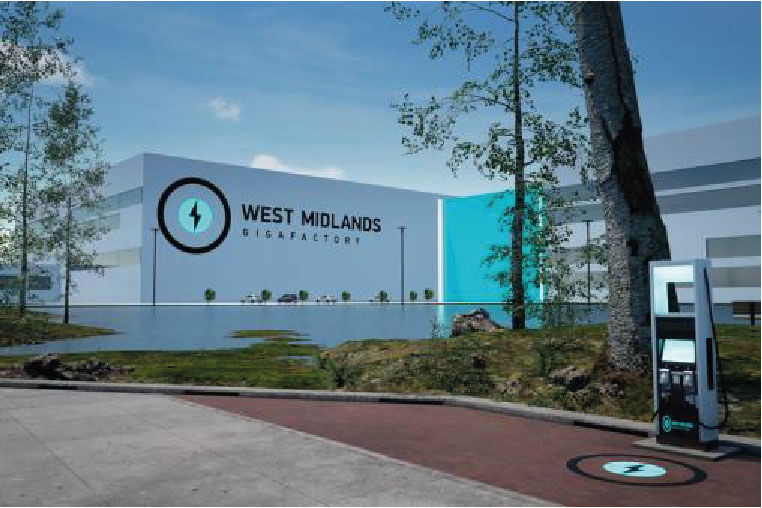 The £2.5 billion gigafactory, to be built on the site currently occupied by Coventry Airport, is expected to create 6,000 direct jobs and support thousands more in the supply chain.
The £2.5 billion gigafactory, to be built on the site currently occupied by Coventry Airport, is expected to create 6,000 direct jobs and support thousands more in the supply chain.
Backed by local authorities across the West Midlands as well as mayor Andy Street and Warwick University, the development is set to receive tens of millions of pounds of Government funding. Jaguar Land Rover is understood to be closely involved in the project, although the carmaker’s role has not been publicly confirmed.
UK manufacturing output remains firm, CBI survey shows – October 2021
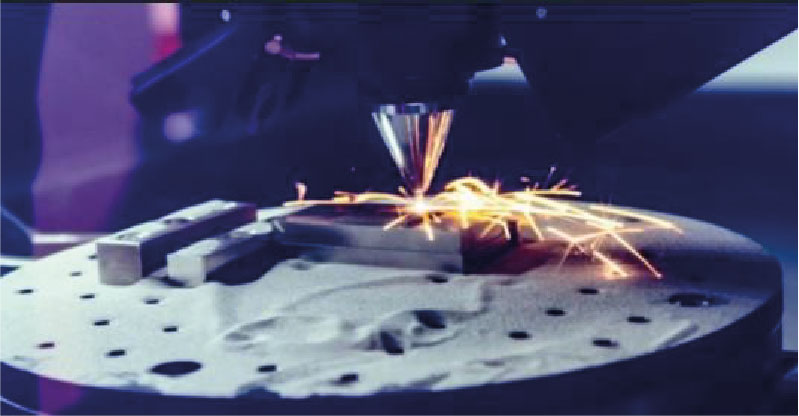 Output in the UK manufacturing industry grew at a similarly firm pace to September, the latest quarterly CBI industrial trends survey has revealed.
Output in the UK manufacturing industry grew at a similarly firm pace to September, the latest quarterly CBI industrial trends survey has revealed.
The survey of 263 manufacturers reported output increasing in 11 out of 17 manufacturing sectors, with growth driven by the chemicals, aerospace, and food, drink & tobacco sub-sectors. Firms expect output growth to pick up substantially in the next quarter.
Total new orders grew at a slower, but still strong, pace compared to July, with the deceleration driven by an easing in domestic orders growth. Meanwhile, export orders increased at a broadly similar pace to last quarter.
Manufacturers expect total new orders growth to pick up next quarter, led by an acceleration in domestic and export orders.
Almac to create 1,000 new jobs in Northern Ireland
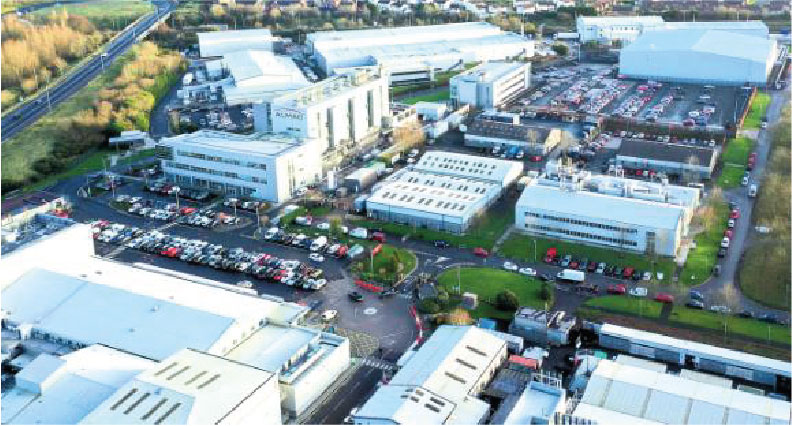 Craigavon-based Almac Group is set to recruit 1,800 new jobs across its global operations over the next three years, with around 1,000 of these in Northern Ireland. The new jobs will include operational, supervisory and managerial roles, including graduate opportunities.
Craigavon-based Almac Group is set to recruit 1,800 new jobs across its global operations over the next three years, with around 1,000 of these in Northern Ireland. The new jobs will include operational, supervisory and managerial roles, including graduate opportunities.
Over the past 18 months, the contract pharmaceutical development and manufacturing firm has been instrumental in providing support to over 140 separate crucial research projects for Covid-19 vaccines and treatments through a range of service areas.
Almac Group has experienced continued growth in revenue and employee numbers annually over the past 15 years and with significant investment in expansion projects planned over the next three years, the company will see its headcount rise to 8,000 across its 19 facilities globally. Earlier this year, the group reported a turnover of £677.3m for its financial year 2019/20 – an increase of £43m (6%) from the previous year.
With 100% of the group’s profits reinvested into the business, Almac has already committed to a number of significant expansion and improvement projects across its sites. These new roles will support this ongoing investment.
Norton Motorcycles opens new factory and global HQ in Solihull
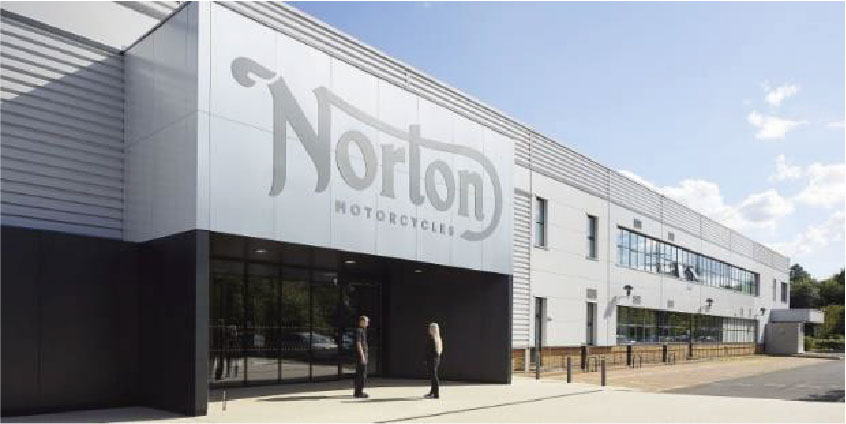 Norton Motorcycles has officially opened its new global headquarters in the UK, creating 100 jobs, with a production line capable of delivering around 8,000 motorcycles a year.
Norton Motorcycles has officially opened its new global headquarters in the UK, creating 100 jobs, with a production line capable of delivering around 8,000 motorcycles a year.
The 73,000 sq ft site in Solihull, West Midlands, will also house Norton’s global design and research and development hub, customer showroom, service workshops and offices.
Norton said its new HQ is a display of significant commitment by its Indian owners TVS Motor Company. Sudarshan Venu, joint managing director of TVS Motor Company, said:
“The opening of the new headquarters represents a significant step forward for Norton Motorcycles and is a proud moment for everyone. We are creating the foundations for a sustainable long-term future for the Norton marque.
“We are setting out to create a bold future for the company, our employees, our customers and our partners that lives up to the highest expectations, enabling Norton to once again become the real global force its legacy deserves.”
Robert Hentschel, chief executive of Norton Motorcycles, said: “The new Norton Motorcycles headquarters is a true embodiment of this iconic British marque. The facility is home to design, engineering, purchasing, sales, marketing, and support departments, as well as the highly skilled production team overseeing the build of our new generation of motorcycles.
“It is the perfect platform to re-energise our business as we lead the Norton brand to onward success where it will play a key role in the future of mobility.”
Germany’s ZF Friedrichshafen opens new £70m technical centre in the UK
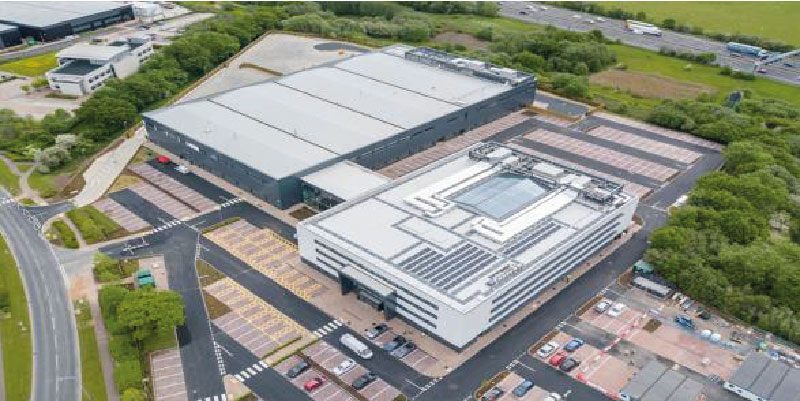 ZF Friedrichshafen AG has officially opened its new purpose-built technical centre at Blythe Valley Business Park in Solihull. This new £70 million 220,000 sq ft facility houses the current 700 staff with room for growth is located in the heart of the UK’s automotive industry and central to all of the UK’s testbed centres.
ZF Friedrichshafen AG has officially opened its new purpose-built technical centre at Blythe Valley Business Park in Solihull. This new £70 million 220,000 sq ft facility houses the current 700 staff with room for growth is located in the heart of the UK’s automotive industry and central to all of the UK’s testbed centres.
The site features the latest technology and infrastructure for developing advanced solutions for an autonomous, electric and connected mobility future. The facility design and architecture underpins the group’s sustainability strategy for across-the-board carbon neutrality by 2040.
The official opening event was marked by a ribbon-cutting, performed by the Mayor of West Midlands Combined Authority (WMCA) Andy Street and was attended by VIPs including representatives from the UK’s top Engineering Universities, senior representatives of UK Government departments and associated strategists for next-generation mobility. Other guests included Dilbagh Singh, Asha Kharga and colleagues from Mahindra Group.
Peter Lakie, ZF Senior Vice President and Key Account Executive thanked the WMCA Mayor, Andy Street, for his comments:
“I am very proud of the teams here: those that had the vision and those who worked to bring that vision to life. The passion of these people, with the support of all the staff, has created a state-of-the-art sustainable environment that promotes collaboration and agile working practices.”
Ardagh Metal Packaging to invest £150m in new factory
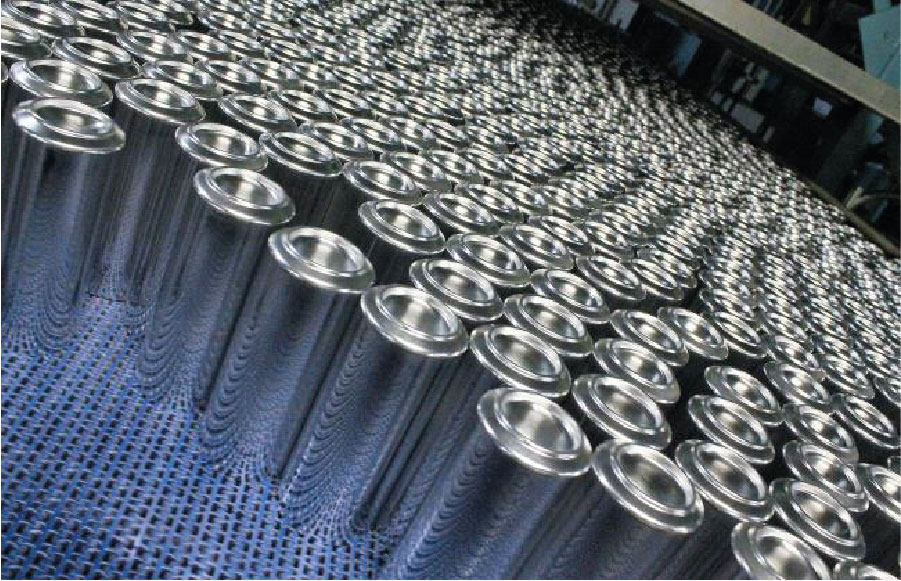 Ardagh Metal Packaging (AMP) has announced that it will invest around £150m to build a new state-of-the-art beverage can plant in Northern Ireland. The plant will be located near Belfast and will service the growing needs of AMP’s beverage customers in Ireland, the UK and Europe.
Ardagh Metal Packaging (AMP) has announced that it will invest around £150m to build a new state-of-the-art beverage can plant in Northern Ireland. The plant will be located near Belfast and will service the growing needs of AMP’s beverage customers in Ireland, the UK and Europe.
The facility is part of a multi-billion dollar investment programme by AMP involving the construction of new, infinitely recyclable, metal packaging capacity in Europe, North America and Brazil.
AMP plans to build the new plant at Global Point near Belfast, close to key local customers. Though details on precise new job numbers are still being finalised, the investment by AMP will lead to the creation of a large number of full-time jobs for engineers, technicians and other roles.
Owen Mumford to invest £14m in new production facility
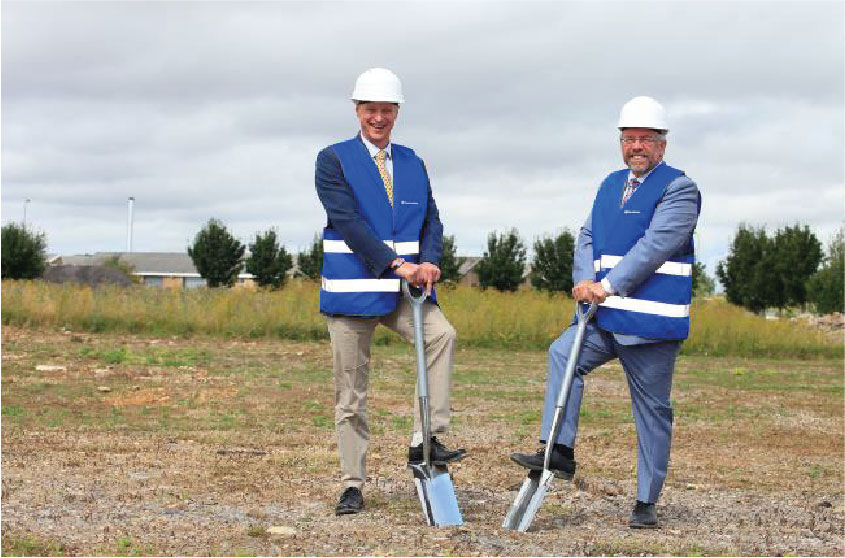 Owen Mumford, a designer and manufacturer of medical devices, has started work on the build of a brand new, state-of-the-art production facility in Witney, Oxfordshire.
Owen Mumford, a designer and manufacturer of medical devices, has started work on the build of a brand new, state-of-the-art production facility in Witney, Oxfordshire.
The £14m investment project will set a benchmark for world-class design and development in medical devices, establishing a centre of excellence for automation and assembly to deliver a portfolio that drives innovation and growth for the long term.
It will also be the location for the production of the company’s recently launched, next-generation auto-injector Aidaptus®, the industry’s first single-use auto-injector for 1mL and 2.25 pre-filled syringes, as well as its pioneering springless safety syringe Unisafe® and the latest lancets for blood sampling.
The design of the building will conform to BREEAM certification, which recognises the highest levels of environmental, social and economic sustainability performance, not only protecting natural resources, but enhancing the wellbeing of associates who will be located there.
During the planning phase, Owen Mumford has worked closely with ecologist specialists to ensure there has been no negative impact on biodiversity, and targets have been set to show biodiversity gains during and after construction. The latest technology and materials are being used to ensure the effective deployment of energy, heating and cooling.
Babcock creates 500 jobs to support Type 31 frigate programme and unveils new assembly hall
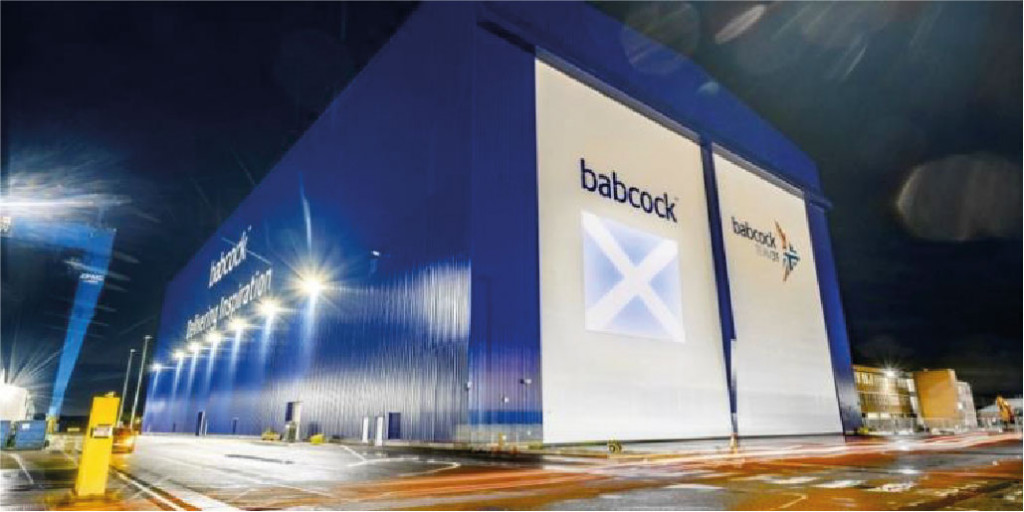 Babcock, the defence, security and aerospace company, has unveiled plans to recruit 500 workers for its Type 31 frigate programme as the build of its new state-of-the-art assembly hall, The Venturer Building is completed at its Rosyth site.
Babcock, the defence, security and aerospace company, has unveiled plans to recruit 500 workers for its Type 31 frigate programme as the build of its new state-of-the-art assembly hall, The Venturer Building is completed at its Rosyth site.
The announcement was made as Douglas Chapman MP, employees, industry representatives, local school children and trade unions gathered to witness the commemorative ‘topping out’ ceremony at the new facility.
The event included a demonstration of two 125 tonne gantry cranes, which will be used to assemble the frigates, with local schoolchildren adding the final touches to the facility by helping to plant bulbs and shrubs around its perimeter.
Measuring an impressive 147m x 62m x 42m, The Venturer Building will initially be used for the assembly of the Royal Navy’s Type 31 frigates, providing a facility that can support UK and international shipbuilding activity for decades to come. As the Type 31 programme continues, the fully covered hall will house two frigates for uninterrupted, parallel assembly and will support increased productivity gains through improved access to the platforms and digital connectivity.
The initial recruitment drive to support the programme will include a variety of trades including welders, fabricators and mechanical and electrical fitters as well as production support operatives. The announcement sees the 500 new roles contribute towards the direct workforce which will peak at the height of the programme at around 1250 people across the UK and will support a similar number in the extended supply chain.
Further opportunities will include operations production management, quality and planning.
British manufactured goods export pushing forward
 Exports of British manufactured goods will contribute around £176 billion to the economy this year and support more than 858,000 manufacturing jobs, according to new research from Barclays Corporate.
Exports of British manufactured goods will contribute around £176 billion to the economy this year and support more than 858,000 manufacturing jobs, according to new research from Barclays Corporate.
The report – The Export Divided – suggests total exports could soar to £190 billion by 2030 if manufacturers that are currently planning to enter the market begin selling their products overseas. 69% of firms with 10 or more employees are currently exporting.
BSA Motorcycles returns to life with Birmingham model launch
 A motorcycle manufacturer has launched its first new model for 40 years – in the area in which it was once based.
A motorcycle manufacturer has launched its first new model for 40 years – in the area in which it was once based.
BSA Motorcycles, formerly of Birmingham, produced its first vehicle in 1903 and went on to become the world’s largest maker of motorbikes.
It went bankrupt in the 1970s and was bought by Indian owners in 2016.
The firm, which said it was looking for a new base in Birmingham, launched its new petrol-engine model at the NEC on the edge of the city on Thursday.
The bike was designed in the UK and built in India and was officially launched at the venue’s Motorcycle Live show.
Ashish Joshi, director of BSA, said a technical centre had already been set up in Coventry where a new electric model would be developed.
Rivian offered incentives by British government to build UK factory
 The UK government has offered American electric car manufacturer Rivian perks in a bid to secure a £1bn car factory in Somerset.
The UK government has offered American electric car manufacturer Rivian perks in a bid to secure a £1bn car factory in Somerset.
Rivian, the American truck and SUV manufacturer, has been offered incentives by the UK government to build a £1bn vehicle-production facility in Somerset, according to The Financial Times.
The perks include a new exit off the M5 motorway for easy access to the plant, the recommissioning of a railway link in the area and numerous training facilities. The 635-acre site could be used for battery production, car assembly or both if the plans are to go ahead. The deal would likely include financial support from the UK taxpayer, with the investment expected to be worth more than £1 billion.
The plant will be Rivian’s first manufacturing facility outside the US, and will give the firm the foothold it needs to easily access both the UK and EU markets. Setting up in the UK would also give the automotive industry another shot in the arm, following Nissan’s announcement that it will build its Leaf replacement in Sunderland, and the recent Stellantis restructure that secured the future of Ellesmere Port.
£450m North East electric battery gigaplant steps up a gear as contractors are appointed
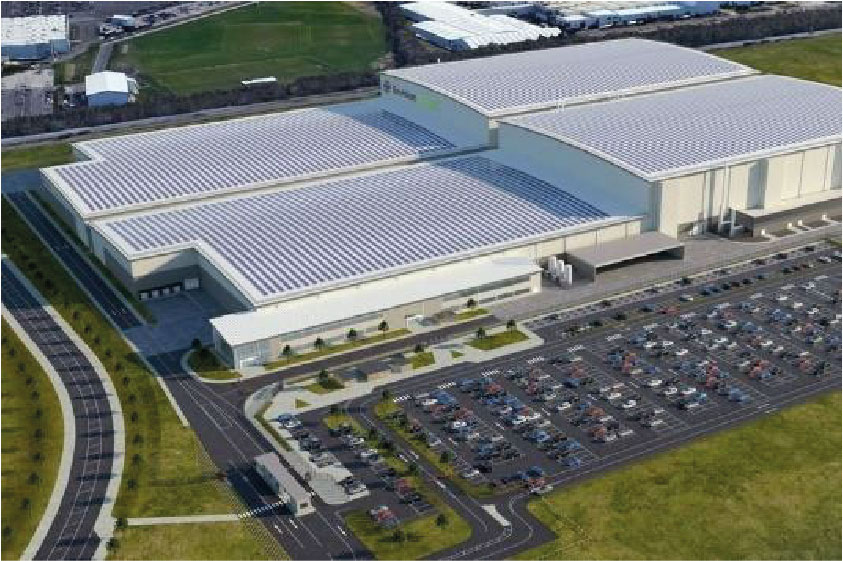 Contractors have been appointed to create the battery gigafactory at the heart of a £1bn North East electric vehicle revolution – and are already in talks with local firms to get them involved.
Contractors have been appointed to create the battery gigafactory at the heart of a £1bn North East electric vehicle revolution – and are already in talks with local firms to get them involved.
The Wates Group and Turner & Townsend have been appointed by Envision AESC to lead the design and project management of the car battery plant at the International Advanced Manufacturing Park (IAMP) in Sunderland.
The £450m gigafactory will form the focal part of the £1bn partnership with Nissan UK and Sunderland City Council to create an electric vehicle hub at IAMP, while also playing a critical role in decarbonisation in UK manufacturing and transport.
Manufacturer puts its stamp on the Middle East
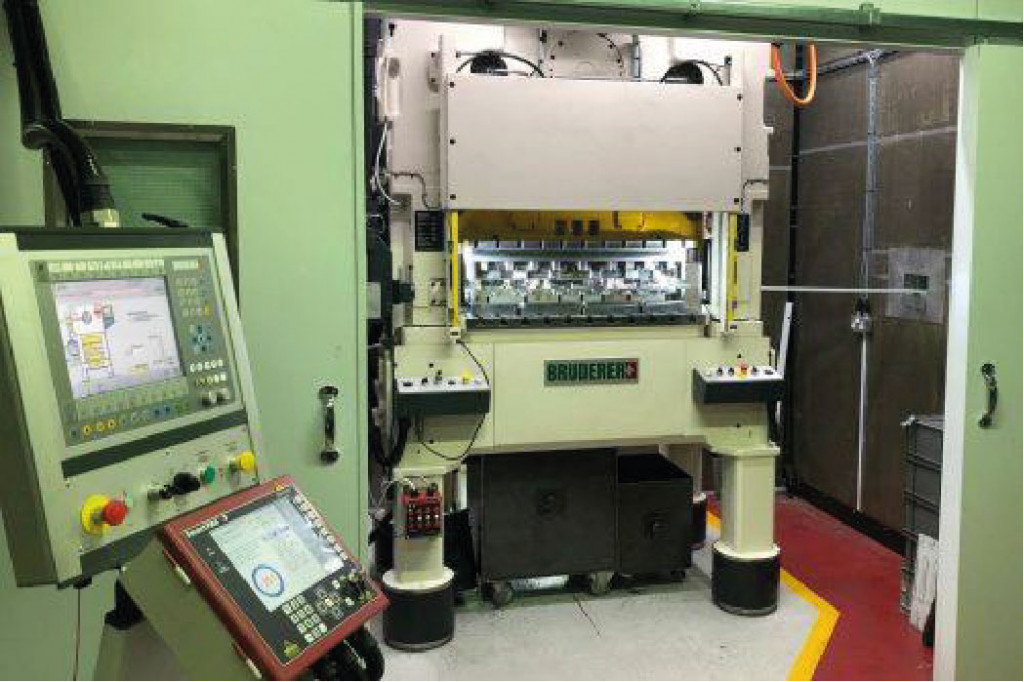 159-year-old metal stamping specialist Brandauer has invested £1.5m in a new high-speed production cell to deliver a major contract to the Middle East.
159-year-old metal stamping specialist Brandauer has invested £1.5m in a new high-speed production cell to deliver a major contract to the Middle East.
Based in Birmingham, Brandauer has strengthened its long-term relationship with Bruderer by installing a BSTA410-100, a high-performance stamping press with a mass balancing system and adjustable stroke.
The machine will be used to manufacture stainless steel substrate frames for a male grooming product that is exported to Israel.
Brandauer says The Bruderer BSTA 410-110 B2 was selected, customised, and commissioned against intense international competition to meet the requirements of its global client.
The press, alongside another Bruderer BSTA 510-110 B2, can produce up to 100 million parts for the customer every year.
Rowan Crozier, CEO of Queen’s Award-winning Brandauer said: “We needed technology that could give us the tolerances and speed required by the customer to meet the order quantities, quantities that have more than doubled since winning the work.
“The Bruderer was our 26th press of theirs. We know the level of performance and reliability it can deliver and we knew we could work with their engineers to spec the machine so that it not only gave us the control we wanted for this project but could also be deployed to pick up other high volume contracts we might be managing in the future.
He continued: “We haven’t been disappointed. The control technology provides automatic ram shut height adjustment while the press is under acceleration and deceleration load for guaranteed process stability and pinpoint repeatability.”
Adrian Haller, managing director of Bruderer UK, said: “We’ve been helping Brandauer produce precision parts since 1976, so it’s great that the firm has once again turned to our presses for its latest product introduction.
“The tri-modular progression tool has more than twenty different stages and is one of the most complex the company has ever created. Our ram guidance system – exclusively at strip level helps eliminate displacement between the punch and the lower die giving engineers the ultimate control over the quality of the component.
“It also plays a big role in reducing tool wear, which I know Rowan and the team were very keen on.”
INVESTMENTS IN LINE WITH THE SMART FACTORY FUTURE
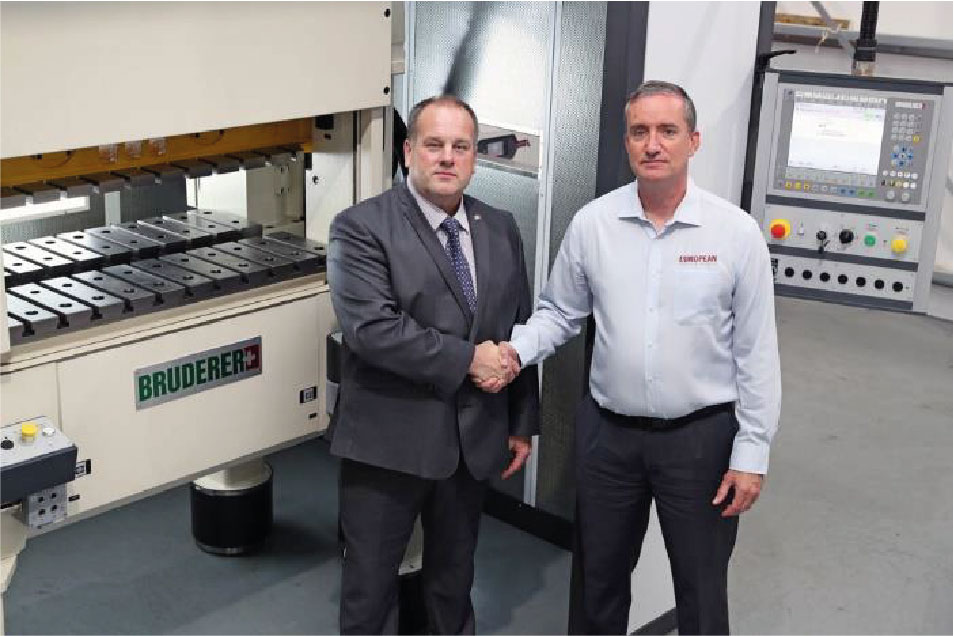 Being at the forefront of the current technological revolution is key to our group’s success. Lesjöfors continues to invest and advance how we manufacture to prepare for the industry’s future. A new Bruderer machine in the UK is one step in this direction.
Being at the forefront of the current technological revolution is key to our group’s success. Lesjöfors continues to invest and advance how we manufacture to prepare for the industry’s future. A new Bruderer machine in the UK is one step in this direction.
The emergence of smart factories, machine learning and connectivity, has added a new dimension to manufacturing facilities worldwide. Throughout the covid-19 pandemic, “Smart Factory” has quickly adapted from an initial concept to mainstream manufacturing.
WHAT IS A SMART FACTORY?
Smart Factories are the driving force of digitalisation in modern-day manufacturing. A Smart Factory can refer to a digitalised shop or facility that operates by connected machines, production systems and devices. You can use the data collected by these intelligent and automated machines to create reports on areas for improvements, ongoing issues and being proactive to live demands.
A combination of technologies connects Smart Factories, including Big Data Analytics, Cloud Computing, AI (Artificial Intelligence), and Industrial IoT (Internet of Things). Each plays a part in combining physical and digital tasks so that the Smart Factory process can oversee and fully integrate every system to streamline performance and operations.
Industrial IoT – Connected machines, processes, or devices linked through data communication, allowing data to be exchanged by people and machines.
Sensors – Built into machines to collect unique data at the various stages of the manufacturing process. Sensors are beneficial for offering live visibility.
Cloud Computing – The processing, storage and sharing of data. Cloud computing gives a cost-effective and flexible solution that allows you to focus on key metrics and solve ongoing issues.
Big Data – Collecting data over time gives you insight into the bigger picture of processes and key metrics. In particular, Big Data helps identify recurring errors.
NEW BRUDERER PRESS INVESTMENT
Continuing our investments in manufacturing over the years, the British Lesjöfors company European Springs & Pressings recently installed a BSTA 410-110B2 and high precision servo feeder to help increase the press shop capacity.
This automated press and tool monitoring technology gives production speeds of up to 1 600 strokes per minute and a fully adjustable stroke between 16 and 47 mm. The high-speed press is an ideal addition to the facility and is used for almost every manufactured pressing.
Stuart McSheehy, Managing Director of European Springs & Pressings, comments:
“Our relationship with Bruderer UK goes back more than 15 years, and this will be the third new machine we’ve taken from Adrian Haller and his team. The Swiss stamping technology is the best in the world when it comes to precision, achieving tolerances and delivering flexibility, and this new BSTA 410-110B2 will be the real jewel in the crown of our new press shop.”
STREAMLINING PROCESSES
The investment in automated machinery has undoubtedly streamlined processes and allowed the company to remain fully operational throughout the covid-19 pandemic. Installing this new equipment in the press shop is critical to the expansion and long-term investment in the latest machinery and technology.
Moreover, European Springs & Pressings are in the final stages of a bespoke £700,000 project involving the construction of a 6000 sq ft press shop. It will deliver approximately 20% efficiency gains, along with a more streamlined production process.


Leave A Comment
You must be logged in to post a comment.